What is a good runners diet for losing weight
A runner’s diet isn’t just about cutting calories. It’s about fueling your body to improve endurance and overall health. In this article, we’ll explore how to create a meal plan that boosts your running performance and helps you lose weight.
Key Takeaways
- Cutting calories alone won’t help; you need a balanced diet to support running and weight loss.
- Proper hydration is crucial for maintaining performance and health.
- Pre-run and post-run meals are important for energy and recovery.
- Healthy fats and proteins should be included in your diet for better performance.
- Smart carb choices can enhance your running endurance and aid in weight loss.
Understanding the Basics of a Runner’s Diet for Weight Loss
A good runner’s diet plan isn’t just about slashing calories to lose weight; in fact, that will actually probably lead to worse running performance and long-term weight gain. A good runner’s diet is about nurturing your body to enhance both endurance and overall health. Here, I’ll share insights and strategies for a meal plan that supports your running performance and assists in your weight loss journey.
Pre-Run Nutrition: What to Eat Before Hitting the Pavement
Ideal Pre-Run Meals and Snacks
To optimize performance during your run, it’s crucial to eat the right foods beforehand. Aim for a mix of carbs and proteins. Simple carbs like pancakes or toast are great because your body will use them quickly for energy. Pair these with a bit of protein, like a small serving of yogurt or a handful of nuts, to keep you fueled.
Timing Your Pre-Run Nutrition
When you eat is just as important as what you eat. Try to have your meal or snack about 1-2 hours before you start running. This gives your body enough time to digest and convert the food into energy. If you’re in a rush, a small snack 30 minutes before can also work.
Foods to Avoid Before Running
Certain foods can weigh you down or cause discomfort while running. Avoid high-fat and high-fiber foods right before your run. These can be hard to digest and may lead to stomach issues. Also, steer clear of sugary snacks and drinks, as they can cause a quick spike and drop in energy levels.
Remember, what you eat and when you eat it can make a big difference in how you feel during your run. Experiment with different foods and timings to find what works best for you.
Post-Run Recovery: Refueling the Right Way

Importance of Post-Run Nutrition
After a run, it’s crucial to refuel your body to help it recover and heal. Food is fuel and if you’re not giving your body what it needs, it won’t recover and heal itself. You’ll feel the consequences during your next run. Eating a snack or light meal of complex carbohydrates and protein within the first hour after running can help replenish glycogen stores and support recovery and rebuild stressed muscles.
Best Foods for Recovery
Prioritize high-quality foods to energize and heal your body. Focus on nutrient-rich, unprocessed foods for maximum benefit. Here are some great options:
- Whole grains like brown rice or quinoa
- Lean proteins such as chicken or tofu
- Healthy fats from avocados or nuts
- Fruits and vegetables for vitamins and minerals
Hydration After Running
Hydration is just as important as eating the right foods. Drink plenty of water to replace fluids lost through sweat. You might also consider a sports drink to replenish electrolytes, especially after a long or intense run. Remember, staying hydrated helps your body recover faster and keeps you feeling your best.
If you want to run better, recover faster and keep your whole body operating in harmony, then this is the nutrition guide for you.
Incorporating Healthy Fats and Proteins
When it comes to running for weight loss, incorporating healthy fats and proteins into your diet is crucial. These nutrients not only help you feel full but also support muscle repair and overall health. Healthy fats such as avocados, nuts, and seeds can provide a feeling of fullness and help you absorb fat-soluble vitamins.
Benefits of Healthy Fats
Healthy fats are essential for runners. They help your body use fat more efficiently as fuel, especially during low-intensity workouts. Including sources like avocados, nuts, and seeds in your diet can make a big difference.
Protein Sources for Runners
Protein is vital for muscle repair and recovery. Aim for at least 1.5 grams per kg of body weight per day. Vary your protein sources, especially if you are vegan or vegetarian. Some great options include:
- Greek yogurt
- Cottage cheese
- Edamame beans
- Peanut butter
- Reduced-fat cheese
Balancing Fats and Proteins in Your Diet
Balancing fats and proteins is key to a successful runner’s diet. A pre-workout meal high in proteins and healthy fats, with some low-glycemic carbs, helps keep your blood sugar stable and enhances fat utilization. This balance ensures you have the energy you need without overloading on carbs.
Remember, a diet rich in healthy fats and proteins can support your running goals and help you lose weight effectively.
Smart Carb Choices for Runners
Good Carbs vs. Bad Carbs
When it comes to carbs, not all are created equal. Good carbs are those that provide sustained energy and are packed with nutrients. These include whole grains, fruits, and vegetables. On the other hand, bad carbs, like sugary snacks and white bread, can lead to energy crashes and are often low in nutritional value.
Timing Carb Intake
The timing of your carb intake can make a big difference in your performance. Eating carbs before a run can give you the energy you need to perform well. Aim to eat a meal or snack high in carbohydrates and lower in fat, fiber, and protein about 1-2 hours before your run. This could be something like a bagel with peanut butter or a banana and an energy bar.
Carb-Loading: When and How
Carb-loading is a strategy used by many runners to maximize their glycogen stores before a big race. This involves increasing your carb intake to about 70% of your total calories for 3-4 days before the event. However, it’s important not to overdo it, as eating too many carbs can lead to weight gain and sluggishness.
Remember, the key to a good runner’s diet is balance. Make sure you’re getting enough carbs to fuel your runs, but don’t forget to include protein and healthy fats in your diet as well.
Meal Planning and Preparation Tips

Creating a Weekly Meal Plan
Set aside one hour every weekend to map out your meal plan for the upcoming week. Then create a shopping list for the ingredients you’ll need. Stock up on quick and healthy staples, such as tomato sauce and wholewheat pasta, for busy days. When you take the time to plan meals, you will notice that one thing will be missing from your supermarket trolley: junk food.
Quick and Easy Recipes
Lunch
- Put cucumber or shredded carrots in sandwiches
- Use hummus as a spread instead of mayo or butter
- Eat raw vegetables in place of crisps
- Blend frozen fruit with soda water for a refreshing drink
Dinner
- Grill vegetable kebabs as well as meat
- Add dried apricots or golden raisins to pilau rice
- Roast a job lot of vegetables at the weekend and add to your salads all week
- Add frozen veg or canned white beans to pasta sauce
Grocery Shopping Tips for Runners
Keep it handy and use it to create smaller lists of things you need on a weekly basis. To help you out, I’ve partnered with a Registered Dietitian (and marathoner) to create a free nutrition course for you. It also includes a massive master shopping list with almost 90 ideas for your next shopping trip – everything from veggies and fruit to seafood and grocery items like Sunbutter and guacamole.
Conclusion
In the end, a good runner’s diet isn’t just about cutting calories. It’s about giving your body the right fuel to keep you going strong and healthy. Remember, running alone won’t help you lose weight in the long run. You need to make smart food choices that support your running and weight loss goals. Whether you’re just starting out or you’re a seasoned runner, finding a diet that works for you is key. So, listen to your body, eat well, and keep running towards your goals!
Frequently Asked Questions
Is cutting calories enough to lose weight as a runner?
No, simply cutting calories isn’t enough. It can actually harm your running performance and lead to long-term weight gain. A balanced diet that supports your running and overall health is essential.
What should I eat before a run?
Before a run, it’s good to eat a small meal or snack that’s rich in carbs and low in fat and fiber. Examples include a banana with peanut butter or a piece of toast with honey.
How important is hydration for runners?
Hydration is crucial for runners. Drinking enough water helps maintain your performance and prevents dehydration, which can lead to fatigue and other health issues.
What foods are best for recovery after a run?
After a run, it’s important to refuel with foods that are rich in protein and carbs. Good options include a smoothie with protein powder, yogurt with fruit, or a turkey sandwich on whole-grain bread.
Can I eat fats while trying to lose weight as a runner?
Yes, healthy fats are important for a runner’s diet. They provide essential nutrients and can help you feel full. Avocados, nuts, and olive oil are good sources of healthy fats.
How can I plan my meals as a runner?
Creating a weekly meal plan can help. Include a mix of carbs, proteins, and fats in your meals. Preparing meals in advance and having quick, healthy recipes on hand can make it easier to stick to your diet.

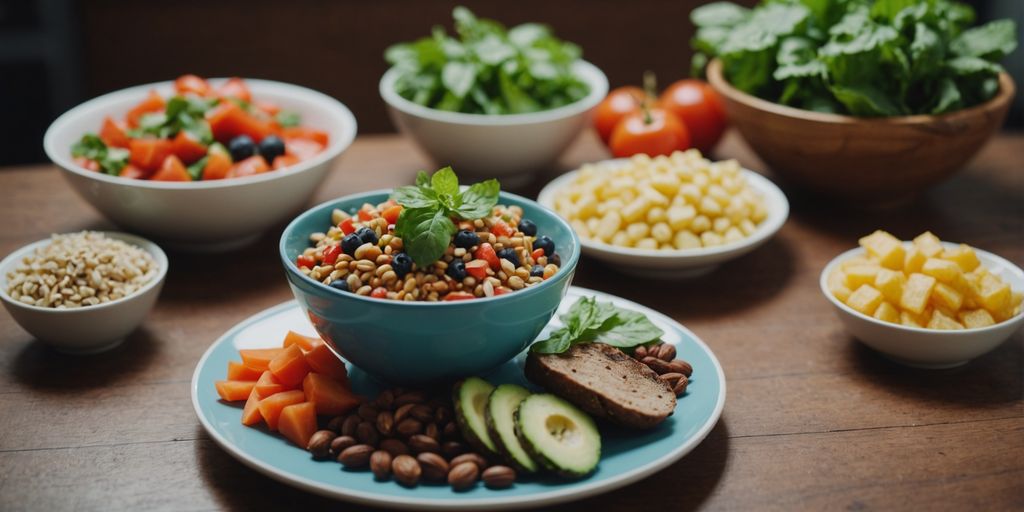

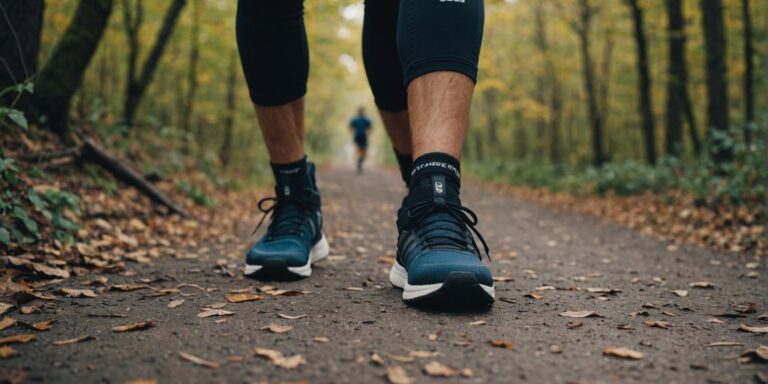
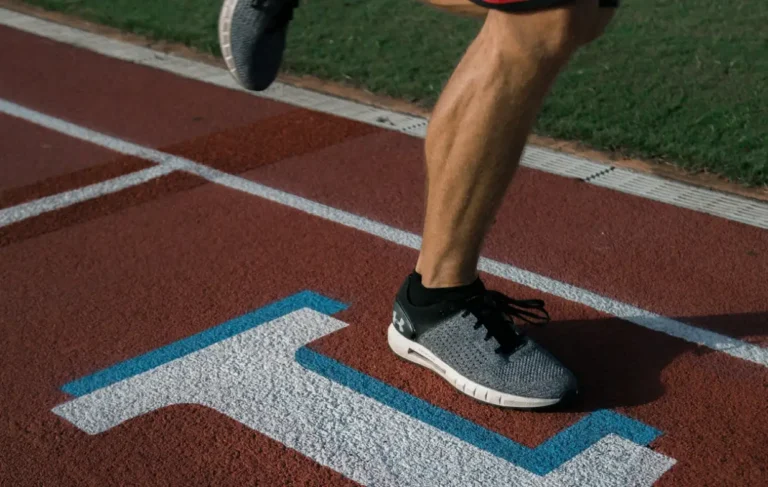
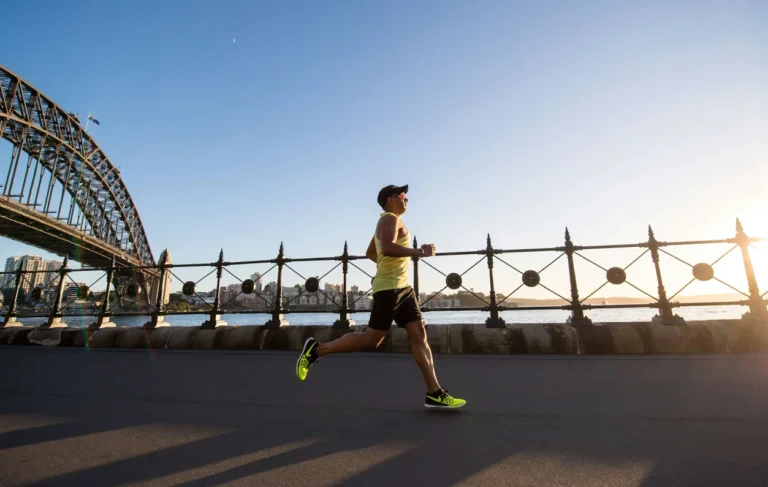
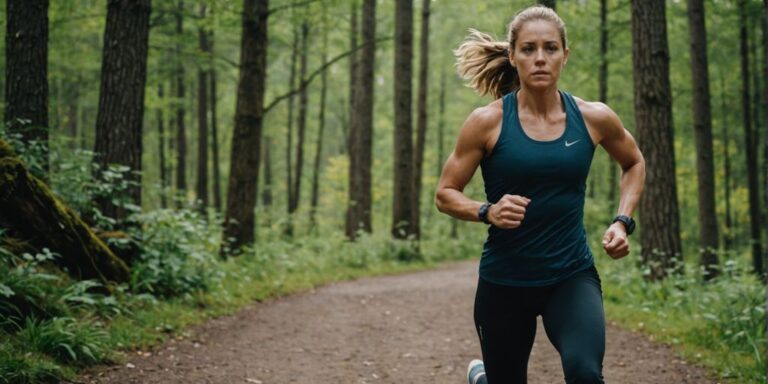
2 Comments